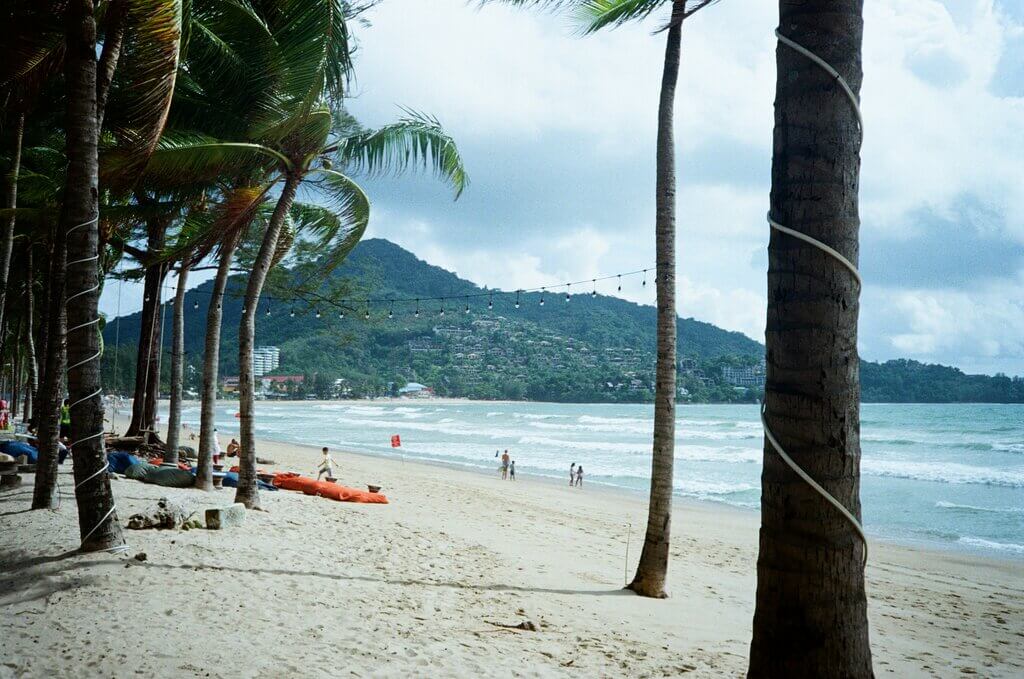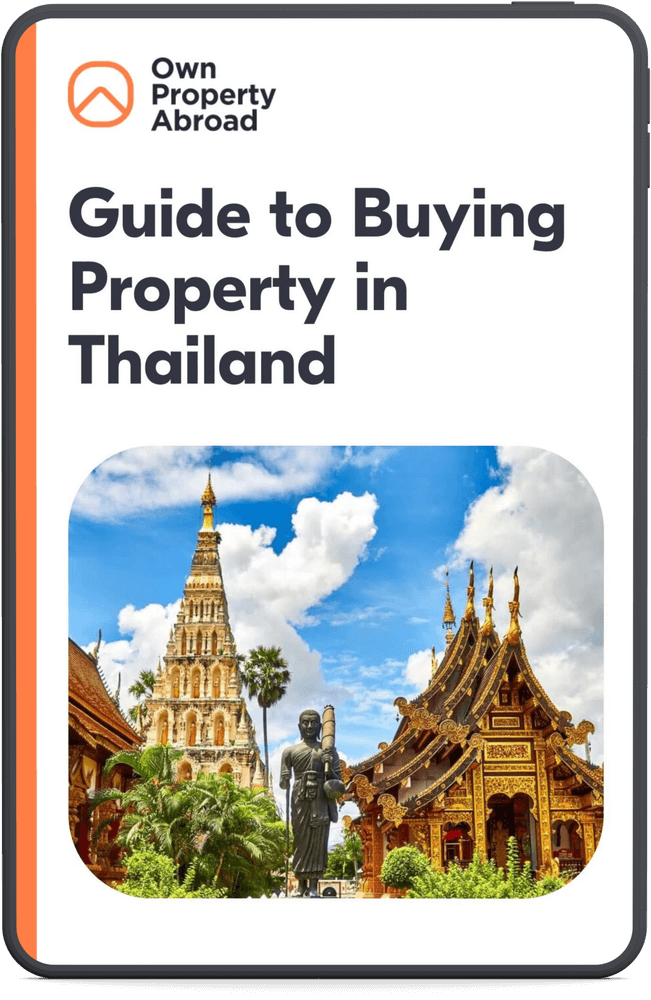Visa options for retirees in Thailand
A requirement for how to retire in Thailand is a long-term visa for retirement. Here are some of the visa options for retirees in Thailand.
1. Retirement Visa
A retirement visa in Thailand allows foreigners aged 50 and above to stay in the country continuously for at least a year. This visa allows for re-entry and can be renewed annually without needing to leave the country. However, meeting specific financial requirements is necessary to qualify for this visa. You can submit your application to a Thai embassy abroad or a Thai immigration office in Thailand.
Requirements
To qualify for a retirement visa, you must meet the following requirements:
- A passport that is valid for at least six months beyond your intended stay;
- Financial evidence in the form of a bank statement;
- Health insurance, as required by some embassies or consulates;
- Citizenship or permanent residency where you are applying;
- At least ฿ 800,000 ($23,792) in a Thai bank account or;
- A monthly income of at least ฿ 65,000 ($1,933).
2. Long-Term Resident Visa (LTR)
Another visa option for foreigners retiring in Thailand is the Long-Term Resident Visa (LTR). The LTR provides a 10-year stay and allows up to four family members to join the primary visa holder. Initially, you are granted a five-year permit, which can be extended for another five years if you continue to meet the eligibility criteria. You can register and apply online for a Long-Term Resident Visa (LTR) through the Board of Investment (BOI).
Requirements
To qualify for LTR, you must meet at least one of the following financial requirements:
- Proof of substantial income: Demonstrate a minimum annual passive income of $80,000.
- Investment and income: If your passive income is between $40,000 and $80,000, you must invest at least $250,000 in Thai assets (government bonds, businesses, or property).
- Significant savings: Maintain a bank balance of at least $100,000 annually.
- Health insurance: You must have at least $50,000 in coverage or be enrolled in Thailand’s social security system.
3. Thailand Privilege Visa (formerly known as Thailand Elite)
Retirement in Thailand can also be done with a Thailand Privilege Visa. This long-term visa allows foreigners to stay in Thailand for up to 20 years without the usual 90-day reports. Beyond the standard multi-year visa and re-entry privileges, members can earn points to redeem for customized benefits. Additional perks like healthcare, shopping discounts, and golf access are included, providing a premium lifestyle experience attractive to foreigners seeking retirement in Thailand.
Requirements
To qualify for Thailand Privilege Visa, you must meet the following requirements:
- Completed application form;
- Recent passport-sized photo;
- Original passport with at least one year of validity;
- Passport biodata page photocopy;
- Valid ID copy;
- Proof of payment for the ฿ 50,000 ($1,487) application fee.
Where to retire in Thailand
After securing your visa, you must consider where to retire in Thailand. A location to retire to Thailand based on your needs and preferences can optimize your retirement plan. Here are some of the best places where to retire in Thailand.
1. Bangkok
Bangkok is the capital city of Thailand and the cultural and commercial center. Numerous foreigners retire in Bangkok because it offers the convenience of living in a metropolitan area. It is home to famous temples like Wat Arun and the Grand Palace. Bangkok blends business and leisure, boasting numerous shopping malls, upscale hotels, and fine dining options. Furthermore, it caters to budget-conscious people who retire in Bangkok because of the accessible amenities and affordable living conditions.
2. Chaing Mai
Chiang Mai is another prime location for foreigners who want to retire in Thailand. It is located in northern Thailand and is known for its historical temples, beautiful mountains, and cool weather. Despite being the second-largest city, foreigners who retire in Chiang Mai experience a more laid-back living conditions due to its access to rural areas. Ecotourism in this region is popular among retirees who want to experience the serenity of nature while still having easy access to living amenities.
3. Hua Hin
Foreigners who retire to Thailand settle in Hua Hin for several reasons. It is located around 200 km south of Bangkok, making it a popular weekend retreat for residents from urban areas. You can enjoy various recreational activities, like Elephant watching in Kuiburi National Park. There are excellent golf courses for those seeking more inland experiences. Moreover, it is a great location for retirement in Thailand if you desire a serene lifestyle with access to beaches and an affordable cost of living.
4. Pattaya
Pattaya City is on the east coast of the Gulf of Thailand, about 100 kilometers southeast of Bangkok. Pattaya boasts a large and welcoming expat community, and the city’s diverse neighborhoods offer options for retirees to find their perfect home base. High-quality healthcare is accessible, and a wide range of outdoor activities are available. While it is generally safe in Pattaya, caution is always advisable, particularly in crowded areas or at night.
5. Phuket
Phuket is an ideal place for retirement in Thailand. It has acquired its reputation as a popular tourist destination by combining ancient Thai culture and history with a thriving modern economy. Phuket offers a comfortable and affordable lifestyle for retirees. The cost of living is significantly lower than in many countries, allowing residents to enjoy a high quality of life. Additionally, the island’s vital infrastructure and accessible healthcare make it convenient to retire in Phuket.

Insurance options for retirees
Insurance is an essential visa requirement for retiring in Thailand. Here are the health insurance options for retirees:
- AXA Insurance: Is a globally recognized insurance provider that offers comprehensive health insurance coverage tailored for those seeking long-term stays or retirement in Thailand. It provides health coverage for in-patient and out-patient care, with a maximum coverage of ฿ 4 million ($118,960) per disability and ฿ 1,500 ($44.61) per outpatient visit for financial protection.
- Pacific Cross Health Insurance: A trusted health insurance provider approved by the Thai government for visa purposes. It offers comprehensive plans for individuals up to age 99. Its policies feature high coverage limits, a vast hospital network, and multilingual customer support.
- LMG Insurance: A well-established and reputable insurance provider in Thailand, backed by the global insurance giant Liberty Mutual. The policy simplifies the visa application by automatically verifying coverage with immigration authorities. Additionally, the plan covers customary and reasonable medical expenses, ensuring financial protection in case of unexpected healthcare costs.
Is Thailand a good place to retire?
Thailand is an excellent place to retire if you want to live in a tropical country and experience the warm climate all year round. Thailand generally offers affordable living conditions with convenient access to healthcare, education, security, and quality amenities. It is good to retire to Thailand because retirees have options between living in a big city, a quiet small village, or settling in with island life on the beach.
How much do you need to retire in Thailand?
There is more than knowing the ideal locations for your retirement plan. You must also know how much money to retire in Thailand and assess your finances efficiently. To help you with financial planning, below is the breakdown cost of how much to retire in Thailand:
- Visa application: The retirement visa costs ฿ 2,000 ($59.48) for a one-year single-entry, ฿ 5,000 ($149) for a one-year multiple-entry, and ฿ 10,000 ($297) for a five-year visa. The LTR visa can be accessed with a one-time application fee of ฿ 50,000 ($1,487). The Thai Privilege Visa can cost anywhere from ฿ 900,000 ($26,766) to ฿ 5 million ($148,700), plus a ฿ 50,000 ($1,487) application fee.
- Health insurance: The cost of health insurance also determines how much to retire in Thailand. Inpatient coverage costs approximately ฿ 55,000 ($1,636) to ฿ 111,000 ($3,301), while comprehensive plans, including outpatient care, cost between ฿ 95,000 ($2,825) and ฿ 225,000 ($6,692) annually.
- Cost of living: The cost to retire in Thailand is lower than in other countries due to the lower cost of living. The estimated monthly cost of living without rent is ฿ 73,139 ($2,175) for a family of four and ฿ 20,579 ($612) for a single person. This average cost includes transportation, clothing, monthly utilities, food, sports, and leisure activities.
- Buying a property: Buying an affordable property that fits your needs and preferences can help you save on the cost to retire in Thailand. The average price of a house in Thailand ranges from ฿ 3.64 million ($108,254) to ฿ 5.09 million ($151,377), with an average of ฿ 144,832 ($4,307) per square meter.
Retire in Thailand with Own Property Abroad
Are you considering retiring in Thailand and purchasing property? Own Property Abroad is here to make your property journey smooth and stress-free. Leveraging our deep understanding of the Thai market, we can assist with legal requirements, property searches, deal negotiations, thorough due diligence, and obtaining the necessary visas for your retirement in Thailand.
Let our expert team guide you through the complexities of the Thai market. For more details on how we can help, please share your information below or email us at [email protected].
Frequently Asked Questions (FAQs)
What are the pros and cons of retiring in Thailand?
The pros of retiring in Thailand are the lower cost of living, access to modern amenities, a warm climate, and a simplified retirement plan for easy visa application. However, there are also cons, including cultural differences that require foreigners to learn the Thai language, economic volatility influenced by global factors, and natural disasters like tsunamis and tropical storms.
What are the requirements to retire in Thailand?
The requirements to retire to Thailand are the following: a valid long-term visa, proof of health insurance, and proof of substantial salary or a minimum balance in a Thai bank.
What is the best place to retire in Thailand?
The best place to retire in Thailand is Bangkok because it has easy access to amenities at affordable prices and is the entry point for many regions in Thailand.
Can anyone retire in Thailand?
Yes, anyone can retire in Thailand because the Thai government allows foreigners to retire regardless of nationality as long as they meet the specific requirements for retirement in Thailand.
How much money to retire in Thailand?
Retiring in Thailand will cost a single person at least ฿ 85,500 ($2,543). This amount covers your retirement visa, health insurance, and monthly expenses. It could go higher if you include your rent or property purchase.







